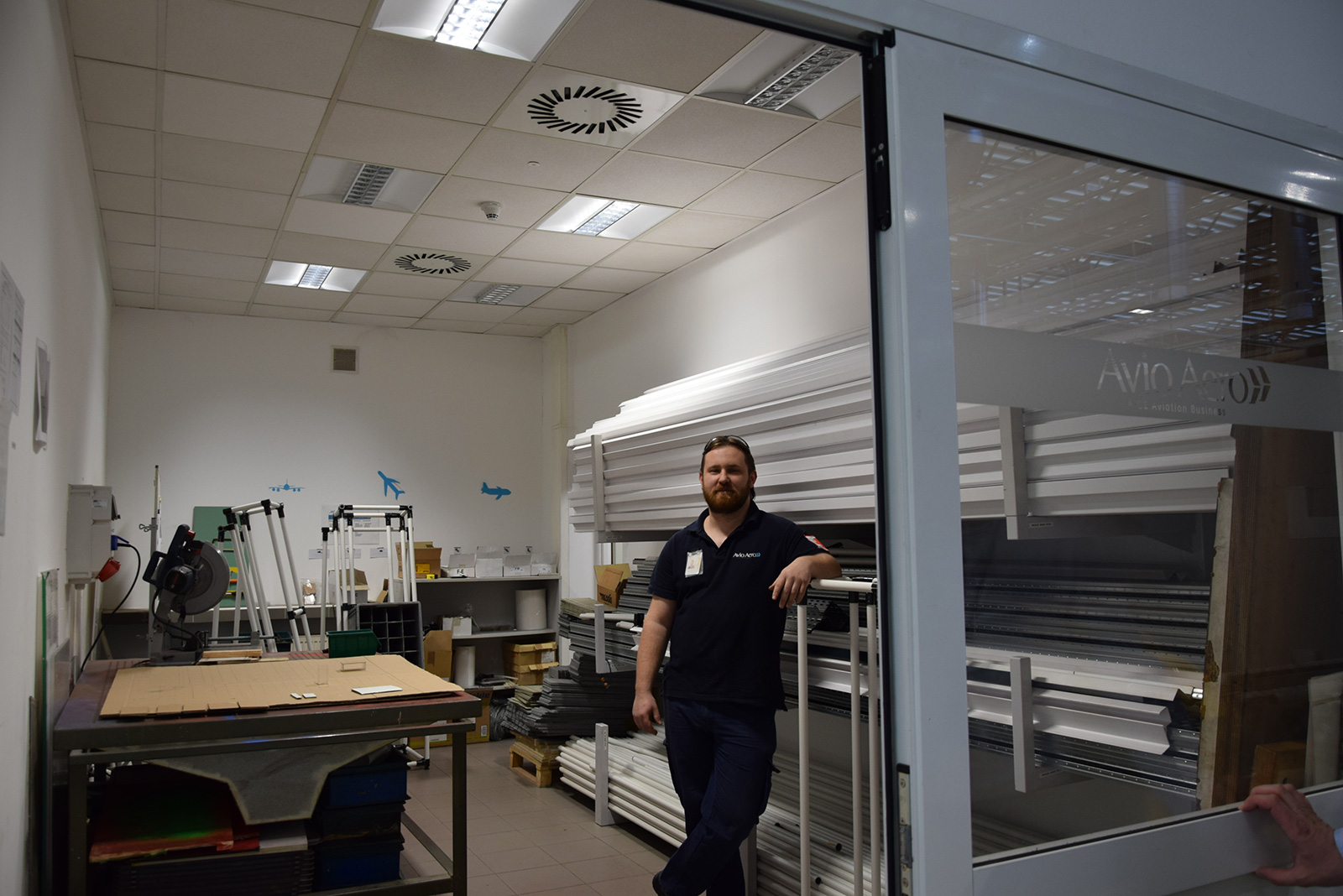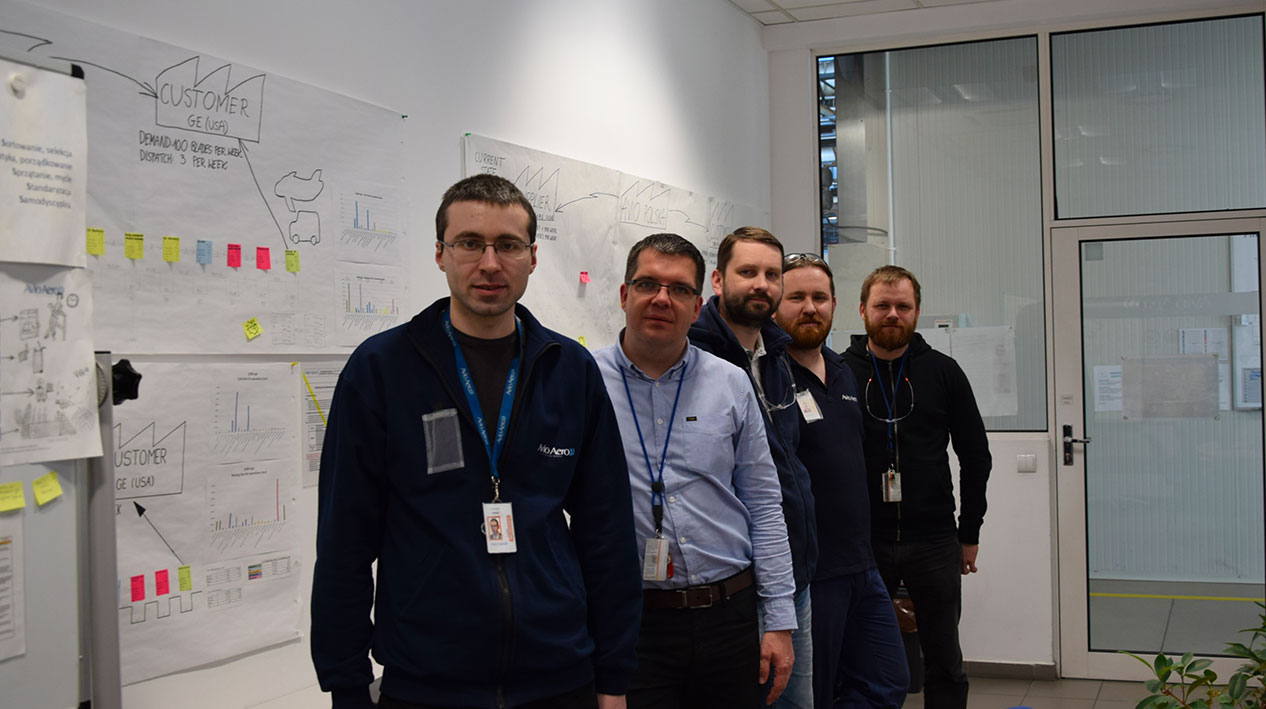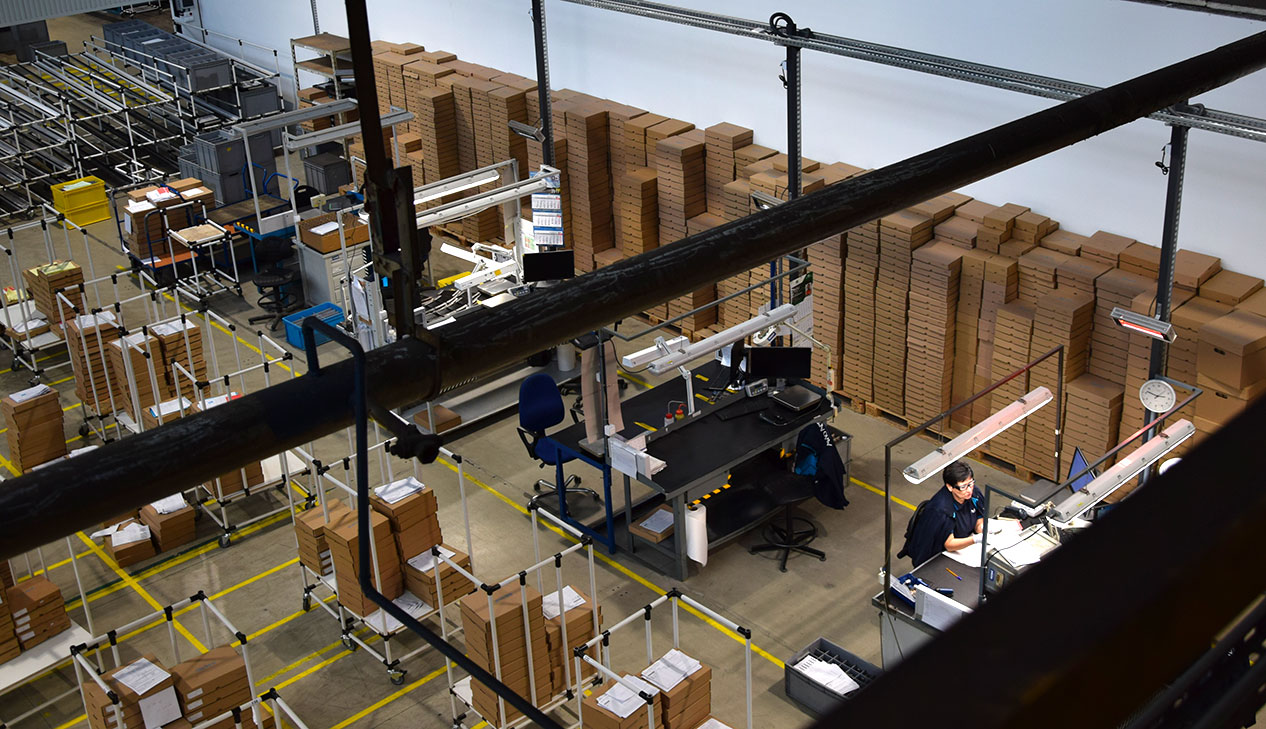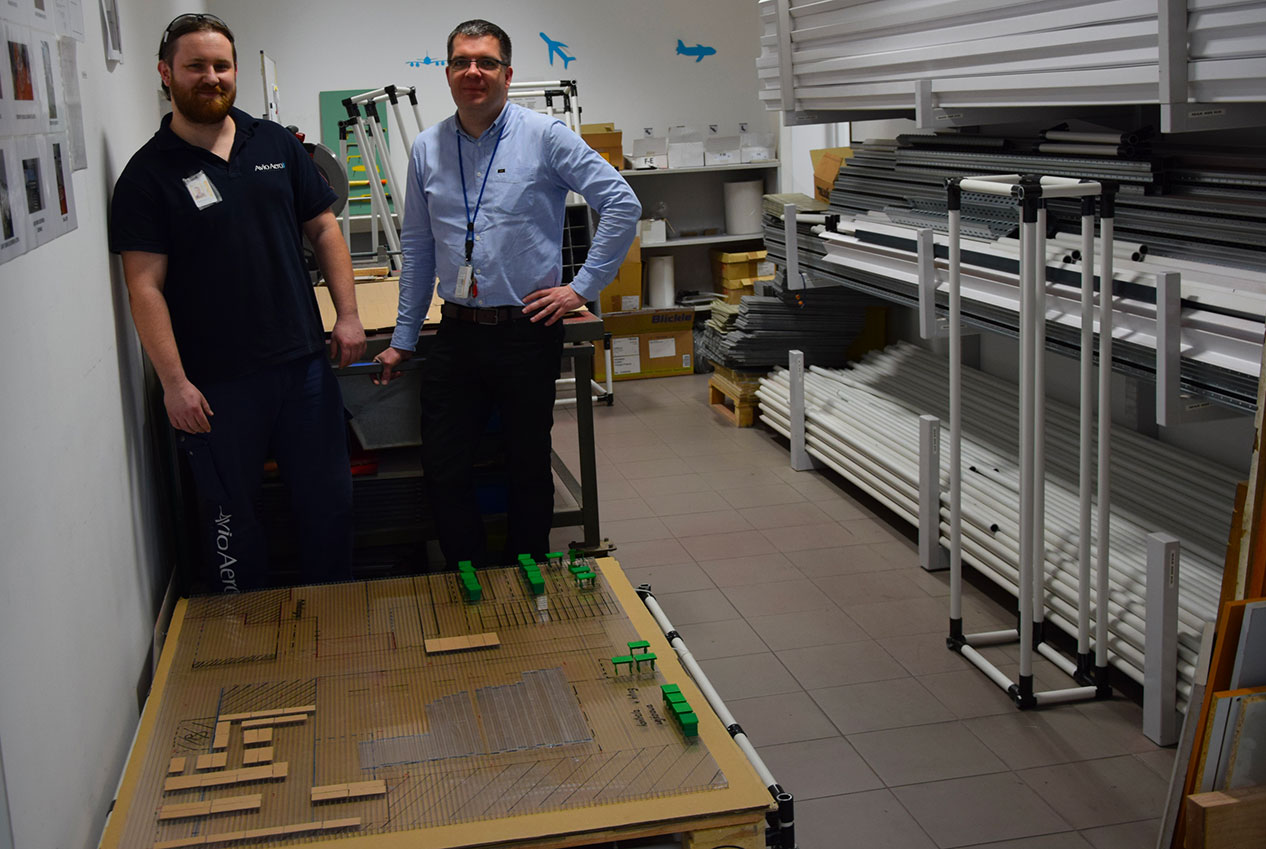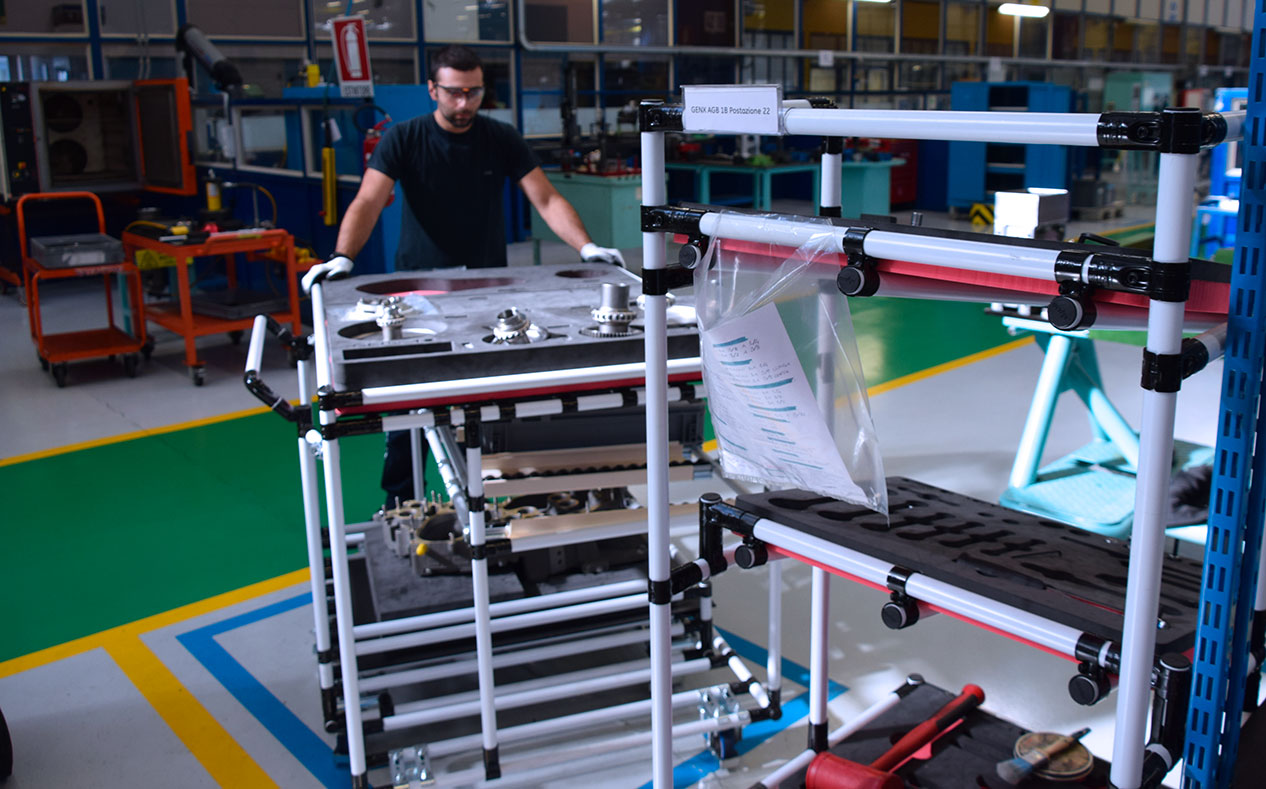Invent
Interior Design for the factory
In modern factories, furniture and tooling must be functional and, at Avio Aero, are designed by professionals who are inspired even by the greatest inventors.
Aug 2019
Perfection and value for the end customer. This is the goal of processes and methods that create value while minimizing any waste, systematically eliminating it. It is a philosophy that is well known to professionals and experts in the industry (but not only) and is called "Lean Manufacturing" or "Lean Management." Its roots lie in the Japanese industry of the 1950s, when Toyota was the first to launch a system to reduce waste without sacrificing production.
The Lean philosophy, more or less consistently since the middle of the last century, is the credo of the employees in any Avio Aero and GE Aviation plant. Specifically, nowadays, all GE Aviation teams in the world are engaged in the so-called Aviation Operating System. A version 4.0 for the application and empowerment of lean manufacturing principles.
These methodologies pursue continuous improvement in production performance but not only. They often represent brilliant innovations. In the case of the Bielsko Biala plant, the Polish center of excellence for the production of stator blades, the Lean Leader Jakub Huma - along with his team made up of three Lean processes and methods specialists - usually experiments with new techniques, just like any other Lean Leader at an Avio Aero industrial site, inside the factory and then shares the results.
One of these techniques is called Moonshine, a concept conceived in Japan to express an innovative method capable of creating new ideas and solutions in industry. This technique is carried out in a small shop inside the Bielsko factory. Since 2015, furniture and tools that are comfortable, functional, and modern in appearance have been designed and built (even repaired) very quickly, improving the factory environment and supporting the work of operators and technicians. Sort of like “furniture workshop” but devoted to industrial production. Less domestic beauty and interior design, more efficiency, practicality, and safety for aircraft engine turbine blade production employees.
"Each Avio Aero employee is part of our team, even if they don't know it," says Huma. "Our Lean Management is based on two basic principles: the first is called Muda and focuses on eliminating aspects of production that do not add any value and for which the customer is not willing to pay. The second is called Kaizen, and requires progressive and sustainable improvements to reach targets, like optimization, speed, and ease of production."
So with Moonshine - active also in the Rivalta, Borgaretto, Brindisi and Pomigliano plants – new and dedicated equipment has been built, for example, for machining and finishing processes on the blades for the LEAP engine or even a transportable basket (with special guides and seats) for the newly produced stator blades, which has made it easier to transport and clean them. These are just two examples of the many tools developed in this department to meet production needs.
Robert Rajda, the Moonshine Operator in Bielsko, began his career at Avio Aero in September 2014 working as an operator in the Rotor Area. Robert is the person in Bielsko who designs and assembles furniture and tools made of thin white aluminum tubes and joints of all kinds. He knows how to build trolleys for production batches, shelves, and also prototypes and tools to support his team in activities directed at production and Lean principles. "Thanks to Moonshine, time is sped up and we can give prompt and valuable feedback to our colleagues. That's the beauty of it: any workers can be involved, providing information about operation or requesting changes to any tools" Rajda says.
"Shortening the time between concept and implementation is important for the whole team. For unusual geometries and objects, external suppliers often need a long time," says Zbigniew Baguda, Lead Manufacturing Engineer at the LEAP area inside the Polish plant, who has adopted Moonshine since the beginning. Indeed, Baguda is supporting the evolution of Moonshine techniques for machine tooling and equipment in his area.
"That's the beauty of Moonshine: any workers can be involved, providing information about operational needs, requesting any furnishing for his working area or changes to any tools"
Moonshine is not limited to "factory furniture and accessories." It provides a strong contribution to the ergonomic improvement of the work-environment. Spaces, tools, and movements are designed according to and together with the specific needs of workers. In fact, the interaction between man, machine, and environment is analyzed to optimize posture and reduce the physical stress on the worker.
According to Robert, new and even better results are still to come in the future. "In my work, it's not just the outcome that matters, but the whole creative process. The project starts when someone comes to me, sends me an email or also when I detect needs on the shop floor. Sometimes the idea for the solution comes easily, while other times it is much foggier. I take inspiration from everything: rooms, objects, the outdoor environment, and even casual conversations. The implementation phase is the most critical because obstacles occur quite frequently. It is at that time that it is important to reflect on who the final recipient is; how many people will use that tool; and what could go wrong, be dangerous or difficult to use," concludes Robert, who has capitalized on his life experience in undertaking the Moonshine
"I live on a farm outside the city. My father was a carpenter and I held several jobs before coming to Avio Aero. This definitely gave me the opportunity to learn new things continuously and even to reinvent myself a bit, as I am doing with the objects I create," says Robert. He suddenly reveals, "But I think that my creative skills come mainly from the curiosity I have developed reading books about one of my idols: Galileo Galilei."


